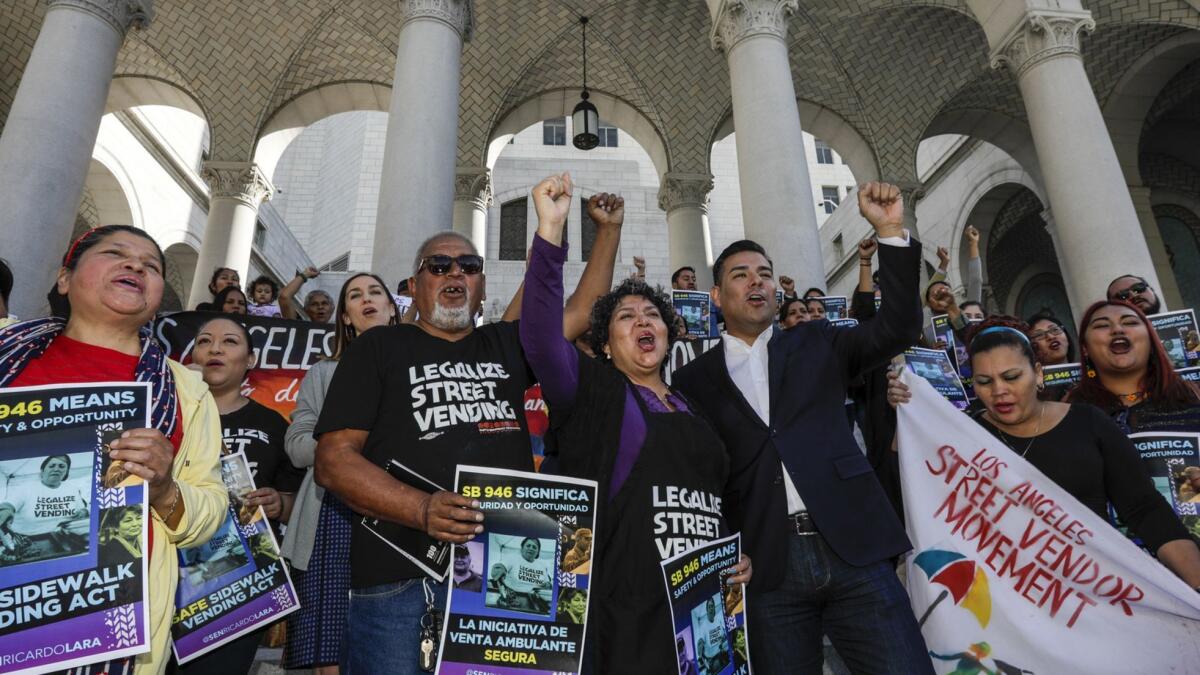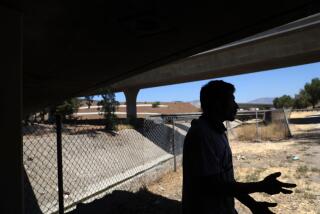To comply with new state law, Newport Beach will allow street vending — with restrictions

A change in state law means Newport Beach must lift its ban on sidewalk vendors.
But the city is still considering significant restrictions, such as banning vendors selling foods and goods on beaches, piers, boardwalks or certain high-traffic stretches of sidewalk on the Balboa Peninsula and Balboa Island, according to a staff report for Tuesday’s City Council meeting.
These are busy, crowded areas where vendor carts could interfere with the flow of foot and vehicular traffic, and the state law, which goes into effect in January, allows cities to restrict vending based on “objective healthy, safety or welfare concerns.”
The council will discuss the law and how it can apply to Newport at an afternoon study session before voting during the regular evening session.
Senate Bill 946, signed by Gov. Jerry Brown in September, legalizes street vending, strips any criminal penalties and essentially gives the state overriding control of the enterprises, requiring local governments to adopt regulations that conform to the state framework.
For a city like Newport, which previously banned sidewalk vendors, that means establishing a permit system and drafting rules that govern the time, place and manner of vending.
In all, Newport detailed more than 30 specific and general places where vendors potentially cannot sell their wares. Some of these prohibitions are explicitly allowed in the state law, such as blocking vendors within the immediate vicinity of permitted farmers markers, swap meets or temporary special events. Others are at the city’s discretion.
In addition to the highest-profile tourist areas, Newport proposes banning vendors on any sidewalk narrower than 8 feet, on the 1.5-mile entirety of the Pacific Coast Highway frontage in Corona del Mar, or within 100 feet of an intersection, school or another vendor. Sellers would not be allowed to set up within 25 feet of any driveway, building entrance or bike rack. They may operate in parks but generally would not be allowed to approach people.
The council will also consider permit fees and administrative fines and penalties.
Davis writes for Times Community News.
More to Read
Sign up for Essential California
The most important California stories and recommendations in your inbox every morning.
You may occasionally receive promotional content from the Los Angeles Times.











